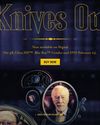In our rush to capture users’ attention and custom, Jamie Stantonian asks if we’re neglecting our ethical responsibility to put their interests and voices first

In the past few decades the user experience profession has taken on an increasingly important role in business, evolving from a ‘nice to have’ to being recognised as an essential competitive advantage. Today, in training our clients to improve their UX maturity, we’re helping them metamorphose into their final form: the ‘user-driven corporation’ – Jacob Nielsen’s term to describe a business that’s absolutely centred on user research to drive its overall direction. This means looking to understand the real problems people face and using these insights to create products and services that address them – perhaps helping people’s lives in the process.
But if we step back and reflect on what this looks like to those less invested in the outcome, we might see things differently. Because, to an outsider, the idea of vast corporate entities using applied behavioural science to sculpt our habits and guide our decisions sounds like something from a William Gibson novel.
As smartphones, smart homes and other interactive technologies become ever more central to the human experience, we bear an enormous responsibility to get this right. But there’s a real danger that when our enthusiasm around technical possibilities combines with our unending quest to prove the ROI of experience design, we end up exploiting rather than advocating for users. Already we’re starting to earn a somewhat sordid reputation as mesmerists whose job is addicting people to apps and swindling them into subscription services. While a magician guides people’s attention and influences their behaviour for entertainment, we do so to meet the KPIs of our clients or for the sake of adding another case study to our portfolios.
INGRAINED ISSUES
Diese Geschichte stammt aus der September 2019-Ausgabe von NET.
Starten Sie Ihre 7-tägige kostenlose Testversion von Magzter GOLD, um auf Tausende kuratierte Premium-Storys sowie über 8.000 Zeitschriften und Zeitungen zuzugreifen.
Bereits Abonnent ? Anmelden
Diese Geschichte stammt aus der September 2019-Ausgabe von NET.
Starten Sie Ihre 7-tägige kostenlose Testversion von Magzter GOLD, um auf Tausende kuratierte Premium-Storys sowie über 8.000 Zeitschriften und Zeitungen zuzugreifen.
Bereits Abonnent? Anmelden

Camille Gribbons
UX designer at Booking.com, Camille Gribbons reveals how she first got into the industry

THE 5G UI REVOLUTION
Tris Tolliday describes his vision of a web UI catapulted forwards by 5G

HOW TO SHOWCASE YOUR DEV SKILLS
Aude Barral shares 5 top tips for landing your dream developer job

KNIVES OUT
Murder mystery film, Knives Out, grabbed everyone’s attention, and so did the fun website that promoted it. Oblio tells Tom May how it created its innovative 3D navigation

HOW EMOTIONAL LABOUR HINDERS WOMEN IN TECH
Christine Brewis, head of digital marketing at Studio Graphene, discusses how gender parity in tech has changed over the last ten years, and what more can be done

EDAN KWAN
He swapped life as a singer for a career making eye-popping digital visuals. The Lusion founder chats to Tom May about battling demons, winning awards and where digital advertising is heading

ANDREW COULDWELL
The Brit in LA discusses his new book on design systems, Laying the Foundations

Top 5 Tips For Ensuring Web Content Is Accessible For All
Merlyn Meredith outlines five top tips for ensuring web content is accessible for all

WHAT DOES THE FUTURE HOLD FOR BROWSERS?
Nico Turco examines the state of play with browsers, whether developers should encourage diversity or monopoly and how Google fits into it all

YEARS IN THE MAKING
Exclusively for net: The latest in a series of anonymous accounts of nightmare clients